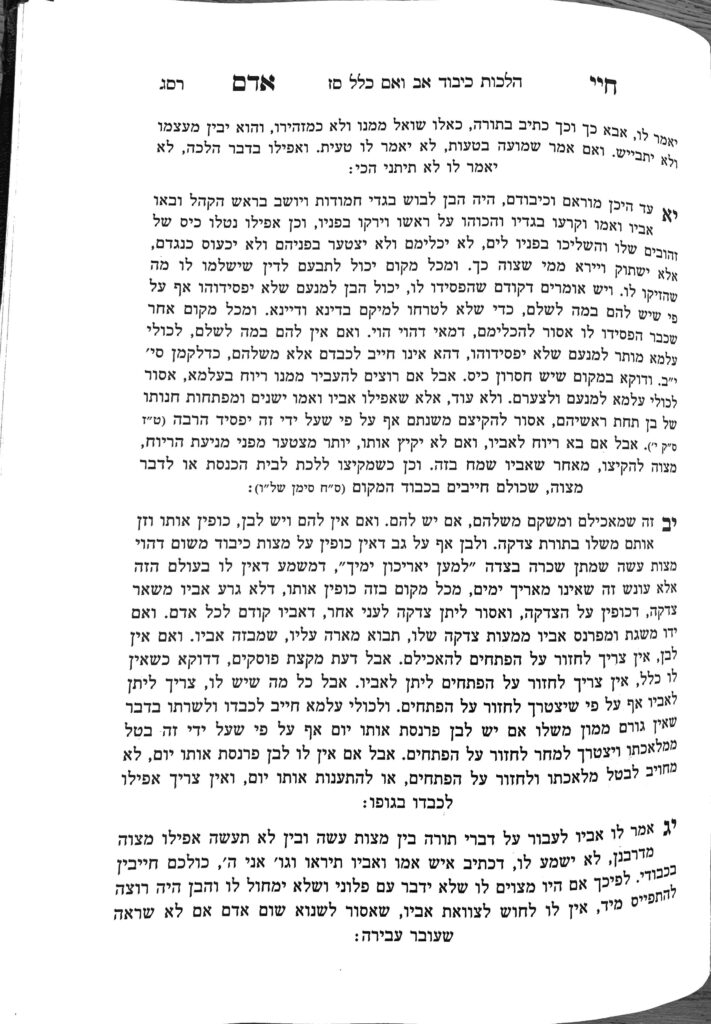We are continuing in siman 12, where the Chayei Adam introduces the concept of forcing a child to financially support their parents. We have learned that the child’s chiyuv does not stem from the mitzvah of kibbud av v’eim, because the chiyuv of kibbud av v’eim only includes acts of service. Rather, the chiyuv to provide financial support stems from a chiyuv tzedakah, like any other tzedakah obligation. In the hierarchy of precedence of tzedakah obligations, supporting one’s parents comes first
.The Chayei Adam continues, and writes that if a child is wealthy enough that he does not need to use tzedakah money to support his parents, he may not use tzedakah money, but rather must use his regular money. The Chayei Adam explains that even though the child has no chiyuv to support his parents as far as the mitzvah of kibud av v’eim, when the child nonetheless supports the parents due to his chiyuv tzedakah, there is an element of bizayon (disgrace) for a child to support his parents through tzedakah. When a child does not have the financial means to do otherwise, the child may use his tzedakah money for this support, but if the child does have the means, he should not use tzedakah money in order to avoid the bizayon. If the child has the means, but nonetheless supports his parents from tzedakah, Chazal place a curse on that person.
If the child does not have the financial means to support their parents–not even from tzedakah money–one may argue that the child should go knock on doors to raise money for the support of the parent. However, the Chayei Adam rejects such a notion. Nonetheless, the Chayei Adam writes that the child is chayav to share with their parents whatever the child does have, even if the result is that by sharing his income, the child himself must now knock on doors.
Therefore, the Chayei Adam adds that in a scenario where one is able to financially support themselves, but by taking time off from work to take care of their parents they will not have the full income they need to remain independent, and will subsequently need to collect money, the child is chayav to take off the time from work. Even if they will later need to raise money for themselves, we look at the situation as it is in the present moment, and not in terms of what will be in the future. We will clarify more about this in the next shiurim.
Summary
- The chiyuv kibud av v’eim is limited to acts of service and does not include financial support. However, a child who has the means may be chayav to support his parents by dint of the mitzvah of tzedakah, and their parents would take precedence over any other tzedakah matter..
- If the child is wealthy enough that they do not need to use tzedakah money, they may not do so, and must support their parents from their regular income. If they nonetheless use tzedakah money, Chazal place a curse upon the child.
- If the child has absolutely no money, he is not chayav to knock on doors in an effort to collect for his parents.
- However, if the child has enough to support himself but not to share with his parents, he must nevertheless share it, and if it is necessary in the future, collect from others.



